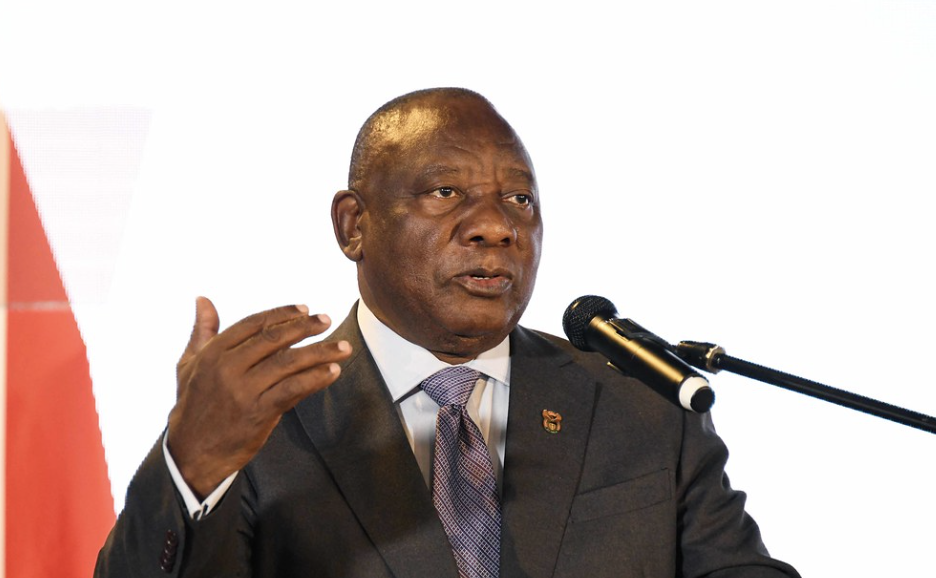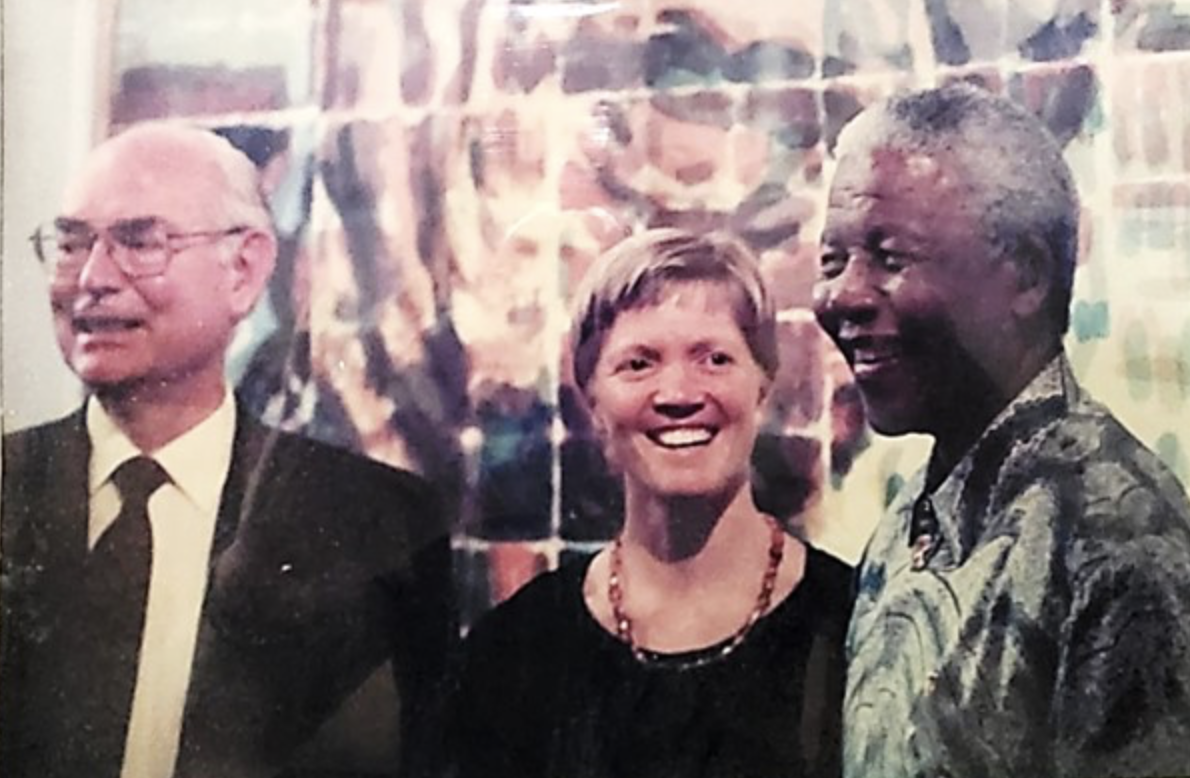News
Ramaphosa’s Geopolitical Charade — the Unbearable Consequences of Misaligning
South African foreign policy is less about non-alignment than misalignment with the country’s Constitution, its democracy and the socioeconomic interests of its people.

Former Director, The Brenthurst Foundation

Former Research Director, The Brenthurst Foundation

The ink had hardly dried on President Cyril Ramaphosa’s heartfelt claim to South Africa’s non-alignment when facts on the ground conspired to expose this as a hollow charade.
A day and a bit after Ramaphosa’s comments, the commander of the SANDF, General Rudzani Maphwanya, arrived in Moscow “to discuss issues on bilateral military cooperation”.
His host was none other than the Commander-in-Chief of the Ground Forces General of the Army Oleg Salyukov, the man directly in charge of Russia’s invasion of Ukraine and the destruction of swathes of civilian infrastructure.
Bilateral talks took place “where the parties discussed military cooperation”, according to the official Russian statement, which demonstrated a remarkable grasp of Orwellian doublespeak.
“For Russia, cooperation with African partners is strategic and long-term in nature, which includes friendly, secure and equitable relations,” said Salyukov.
On the ground in the Sahel and Sudan, a slightly different narrative is unfolding as Russia’s Wagner-based proxies commit human rights atrocities and prop up military regimes while looting minerals.
Russian ‘air arsenal’
South Africa’s military entanglement with Russia was not limited to this high-level endorsement of its ground forces. The South African Air Force issued a statement in which it welcomed “the visiting aerospace forces of the Russian Federation” to the country, which it described as an “air arsenal”.
The Russian government was due to send two Tupolev Tu-160 strategic nuclear-capable bombers and an Antonov An-124 transport aircraft on a “defence diplomacy” mission to South Africa.
Never mind that the Tu-160 “White Swans”, Nato codename “Blackjack”, which earlier paid a flying visit to South Africa in October 2019, have been responsible for the launching of missiles in Ukraine, and its airmen are cited by Kyiv as war criminals.
The Tu-160 can carry almost 45,360kg of munitions, including 12 of the Raduga Kh-55 family of cruise missiles in two internal rotary launchers, which have been fired against civilian targets in Ukraine, or 12 AS-16 Kickback short-range nuclear weapons.
At the last minute, a terse statement was issued announcing the cancellation of the visit by the Tupolevs. If this was due to a realisation of the appropriateness of the visit, this would be heartening, but since the head of the SANDF was taking the salute in Moscow, unlikely.
Ukrainian foreign minister
Sandwiched somewhere between Ramaphosa’s heartfelt claim to neutrality and the military’s endorsement of the Russian war machine was the visit of Ukrainian foreign minister, Andrii Sybiha.
Ramaphosa must have been busy because he did not entertain Sybiha, leaving this task to hapless International Relations and Cooperation Minister Ronald Lamola, whose key diplomatic intervention was to preserve the presence of a microphone of the Russian propaganda service in the face of objections by the visiting minister.
This is supposedly part of South Africa’s policy of “active non-alignment”, as explained by President Ramaphosa this past week in stating that “strong relations with other countries manifested through investment and trade relations that can contribute to the growth of our economy, create more opportunities for new businesses and create jobs”.
In an address on Sunday, 27 October, Ramaphosa asserted that, “While some of our detractors prefer overt support for their political and ideological choices, we will not be drawn into a contest between global powers. Instead, our country strives to work with all countries for global peace and development.”
Never mind that Russia has negligible trade and investment relations with South Africa. And forget that accepting a visit by warbirds of a country that has invaded its next-door neighbour, Ukraine, for reasons of imperial domination is a long way off the mark of striving “for global peace and development”.
Non-alignment or constitutional misalignment?
South African foreign policy is, in this way, less about non-alignment than misalignment with the country’s Constitution, its democracy and the socioeconomic interests of its people.
There is also little apparent downside to South Africa’s rhetoric or actions. Businesses still show up – perhaps with a slight premium of uncertainty added.
But the most vexing question is why the governments of the West, broadly comprising the European Union, United States, Japan, Australia, Canada, UK and other liberal-democratic nations, remain schtum on Pretoria’s obvious non-impartiality and misalignment.

In part, this is because the West is disunited. Consensus in the EU, for instance, is a rare commodity.
Governments are very careful not to upset the relationship, preferring quiet diplomacy to overt reaction, and closely ratcheting measures to sudden moves. The problem with the subtlety of such diplomacy – postponing the EU-SA summit for example – is that it is usually so silent that the signals are not only missed by Pretoria, but most of the authoritarians continent-wide and, most importantly, their populations.
South Africa, among other African countries, is happy to continue this path of supposed non-alignment because not only are there no discernable costs, but they can apparently play the anti-colonial and anti-imperial card over and over again in deflecting any Western attempts to impose conditions and costs. Instead, the Russian/Chinese model is immensely attractive to some African countries, offering the prospect of personal riches with no likelihood of being unseated at the polls, and never mind the cost to African electorates, of course.
One way for the West to resolve this is to carefully calibrate market access and aid to alignment, making it more explicit that it wants to deal only with countries that think and behave according to shared values.
But such calibration is usually rejected by constituencies within the donor countries themselves since they live off the largesse of their own governments, provided precisely to those governments that are going to waste it.
The West should take a leaf out of China’s book in this regard. Beijing has no problem with attaching conditionality to its loans and projects. It is clear about what they want, articulate threats, and follow through. Russia is much the same, although at a thrift store/strip club level, offering less in the way of projects than hard men and materiel to prosecute Africa’s wars, in their own interest, of course.
But fundamentally, a rejection of misalignment is incumbent on domestic constituencies themselves. As Milan Kundera reminds in The Unbearable Lightness of Being, “But when the strong were too weak to hurt the weak, the weak had to be strong enough to leave.”
This article originally appeared on the Daily Maverick

